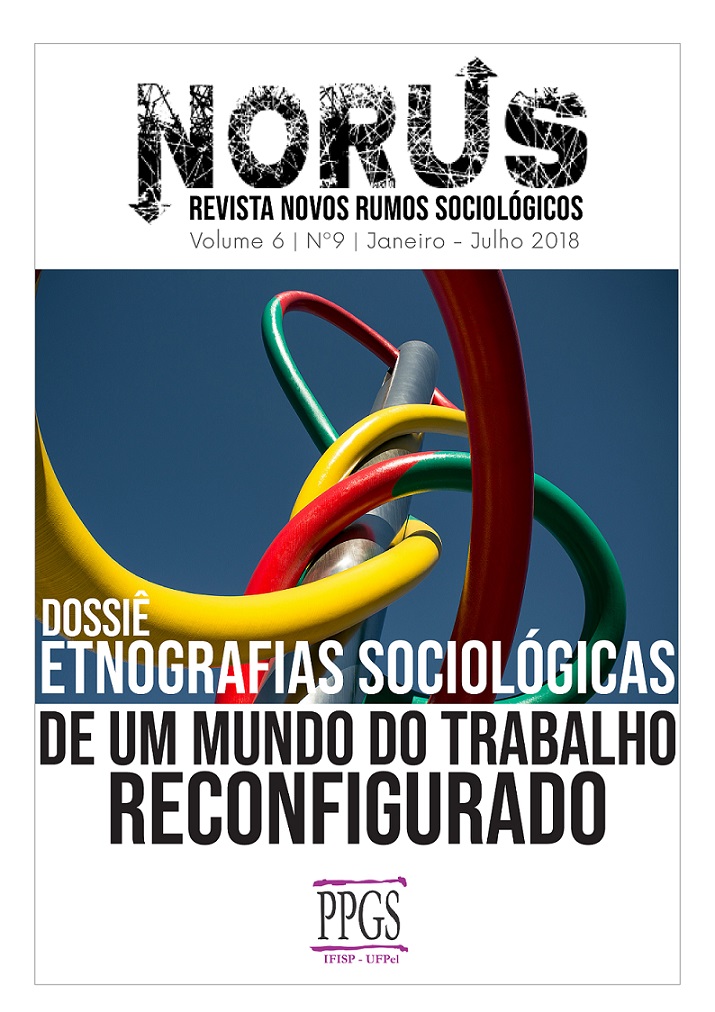Where the precarious ones live
the interlocution between precarious work and territorial stigma
Abstract
This article deals with a study undertaken between the years 2015 and 2017 in locality marked as the “dangerous place” of a small community here called by of “Santa Clara”, south zone of the city of Manaus. It is proposed to discuss an interlocution between the precarious work figures imposed on the popular ones and a reproduction of territories that demand on the areas inhabited by these segments. In the context of the studied locality, the centrality of the category of work in the reproduction of such stigma was observed, since the different relations that the residents develop with this category, allow strategies of escape of the social declassification. This is because, they are residents of a place considered as destined for all sorts of “people who not pay”, adaptations to the formal labor market becomes a kind of attribute of “capacity” and “honesty”, an understanding that allows them to the establishment of criteria of distinction and hierarchical scales of (dis)group classification that culminate in the valuation of some subgroups, to the detriment of a large majority marginalized, considered inapt to the formal job market. The “worker” figuration appears then in the context of the current neoliberal discourse reproduced in the place, as an element of distinction and not of unity, a dynamic that reinforces the marginalization of the great majority without access to the formal labor market, which appeared in the field in the figure of the unemployed. By implication, the same dynamic allows the territorial stigma of “dangerous place” that affects the locality, is reinforced inside, by the action of the own residents.


